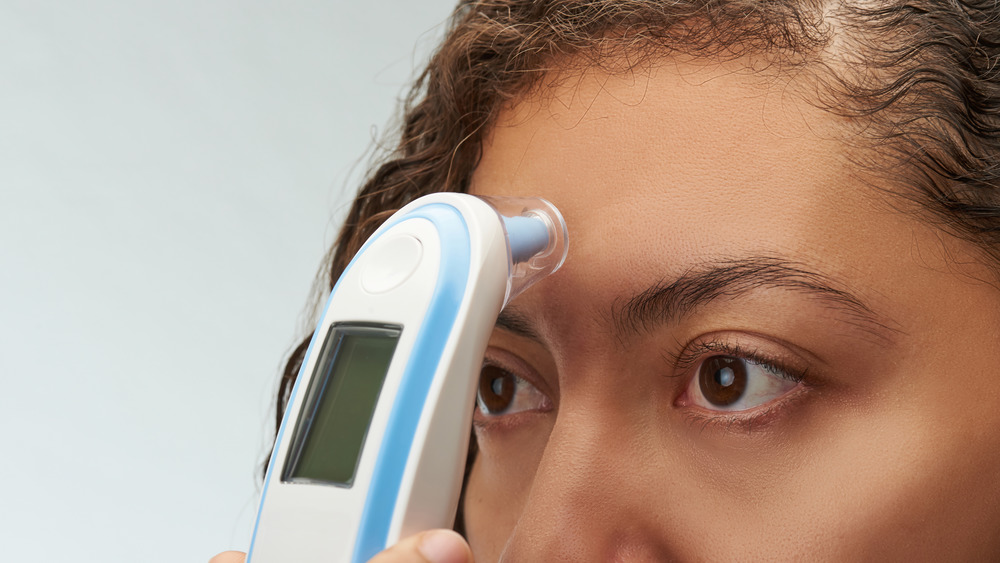What Does It Mean When You Have A Low Temperature?
In the winter, many of us bundle up in warm layers to keep from getting too cold. Coats, hats, and gloves keep our extremities from freezing and our body at the perfect temperature to keep functioning properly. When it burns calories needed for survival, your body naturally releases heat. But what exactly is a normal temperature for a typical person? It's probably not 98.6 degrees F like you may have heard.
Scientists know that there isn't one set temperature for every person's body. Instead, your "normal" temperature may fall within a range of about 97 to 99 degrees F (via Cleveland Clinic). However, there are plenty of people whose bodies may be slightly warmer or cooler. Doctors say that this is normal, and for the most part, is not dangerous. Adults who have a temperature over 100.4 have a fever and should check with their physician to find out what's causing it. But what happens if your temperature falls below the normal range?
These things may affect your body temperature
It's important to remember that body temperatures can change throughout the day, so if you check yours and see that it's low, it may not be cause for alarm (via WebMD). Your body also gives off more or less heat depending on what time of the day it is, what you've had to drink, and even your activity level. As we age, our temperature usually decreases slightly.
Even the way you check your temperature can affect what your reading will be. Checking your forehead, ear, or armpit temperature will often give you a lower reading than checking internally. But certain diseases, like hypothyroidism, can actually cause your temperature to drop. This is because it slows down your metabolism so you don't burn as many calories. A temperature of 95 degrees F or below is considered dangerous and is classified as hypothermia. Prolonged hypothermia can lead to dangerous side effects and even death.
If you're not in a high-risk category for hypothermia and your temperature drops slightly below the normal range, it may not be anything to worry about. By paying attention to what a normal body temperature is for you, you can have a better idea of when a change is cause for alarm, and when you might just need to put on a sweater.


